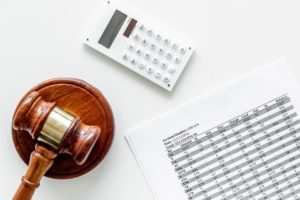
Bankruptcy has developed an unfortunate stigma. It’s often derided as an indicator of failure or proof that a business or person couldn’t effectively manage their finances. These common assumptions couldn’t be further from the truth. Bankruptcy, like several other legal actions, is a tool – one that provides a solution for those faced with a difficult situation. For this reason, among others, you should not feel guilty about filing for bankruptcy.
Instead of feeling guilty about bankruptcy, consider how this legal action could positively impact you. It’s not the only method for dealing with debt, but it can be highly effective when employed correctly.
What Is Bankruptcy?
While frequently mentioned in the world of finance, bankruptcy is often misunderstood. Bankruptcy is always handled in federal court and allows debtors (those who owe a debt) to eliminate debt completely or to create a plan for repaying their outstanding debts. There are several bankruptcy types, the most common of which are:
- Chapter 7
- Chapter 9
- Chapter 12
- Chapter 13
- Chapter 15
Bankruptcy often involves documenting an individual’s assets and using them to pay their outstanding debts. The type of bankruptcy they file will impact how this process works. Other approaches include working with the courts to build an agreed-upon repayment plan.
Bankruptcy Offers a Fresh Start
Bankruptcy can offer individuals a fresh start. Typically, this legal process will allow you to discard all your outstanding debts eventually. With these debts relieved, you can finally move forward with your life. There is no age limit to file for bankruptcy, but the requirements and consequences may vary based on the age of the filer. You shouldn’t avoid filing for bankruptcy because you’re experiencing guilt and shame. The sensation of freedom in knowing that your debts are gone can outweigh any other negative emotions associated with bankruptcy.
If you’re on the fence about filing for bankruptcy, consider working with a bankruptcy lawyer. They can:
- Tell you if filing for bankruptcy makes sense in your situation
- Explain the different types of bankruptcy to you
- Explain the tax considerations involved with filing
- Help you with the filing process
- Help you understand relevant bankruptcy procedures
Personal Injury Lawyer Near Me 828.286.3866
Bankruptcy Can Happen to Anyone
Anyone, no matter how financially savvy they are, can be put in a position where they need to file for bankruptcy. The situations that necessitate bankruptcy are often out of an individual’s control. These are some common reasons individuals may file for bankruptcy:
- Medical bills: Medical bills, particularly for those without adequate insurance, can force you into debt. Moreover, these bills often result from factors outside of an individual’s control, like a cancer diagnosis or car accident. Treating terminal or life-threatening conditions is never cheap.
- Layoffs: Layoffs can affect even the highest achieving employee at a company. Filing for bankruptcy can help those without income to continue paying off their debts.
- Divorces: Divorces don’t discriminate. Sometimes, despite your best efforts, things just don’t work out. Divorce proceedings aren’t cheap, and they can send one or both parties into a pit of debt.
Remember, filing for bankruptcy doesn’t mean you failed; it means you’re being proactive about handling a difficult situation.
Chapter 7 Bankruptcy May Be the Most Efficient Way to Deal With Your Debts
Most people will deal with outstanding debts at some point in their life. Bankruptcy provides an efficient way to deal with these debts. For example, some assets are typically exempt from liquidation in the Chapter 7 bankruptcy process. Per G.S. §1C-1601, exempt assets in North Carolina include:
- $35,000 in residential property equity for those below the age of 65
- $65,000 in residential property equity for those above the age of 65 in certain circumstances
- A motor vehicle worth up to $3,500
- A total of $5,000 in household belongings, with an additional $1,000 per dependent
- Recently earned wages that are necessary to support your family
- Prescription health devices
Since most people who file Chapter 7 bankruptcy do not have any nonexempt assets, they can discharge their debts and retain their property.


Chapter 13 Bankruptcy Helps You Create a Consolidated Payment Plan
Chapter 13 bankruptcy relies on building a wage earners’ plan to be paid off between three to five years. This approach comes with several benefits, including:
- The consolidation of your debts—you’ll pay what you owe to a Chapter 13 trustee, rather than individual creditors.
- You typically won’t need to sell off your personal belongings during Chapter 13 bankruptcy.
- It could reduce your mortgage payments by rescheduling them across the life of your wage earners’ plan.
You’re Entitled to Legal Representation During Bankruptcy
Bankruptcy doesn’t need to be confusing or scary. Our team at Farmer & Morris Law, PLLC can make this process as straightforward as possible. We can help you understand the specifics of your situation during a free case evaluation. Contact our office to get started today.












